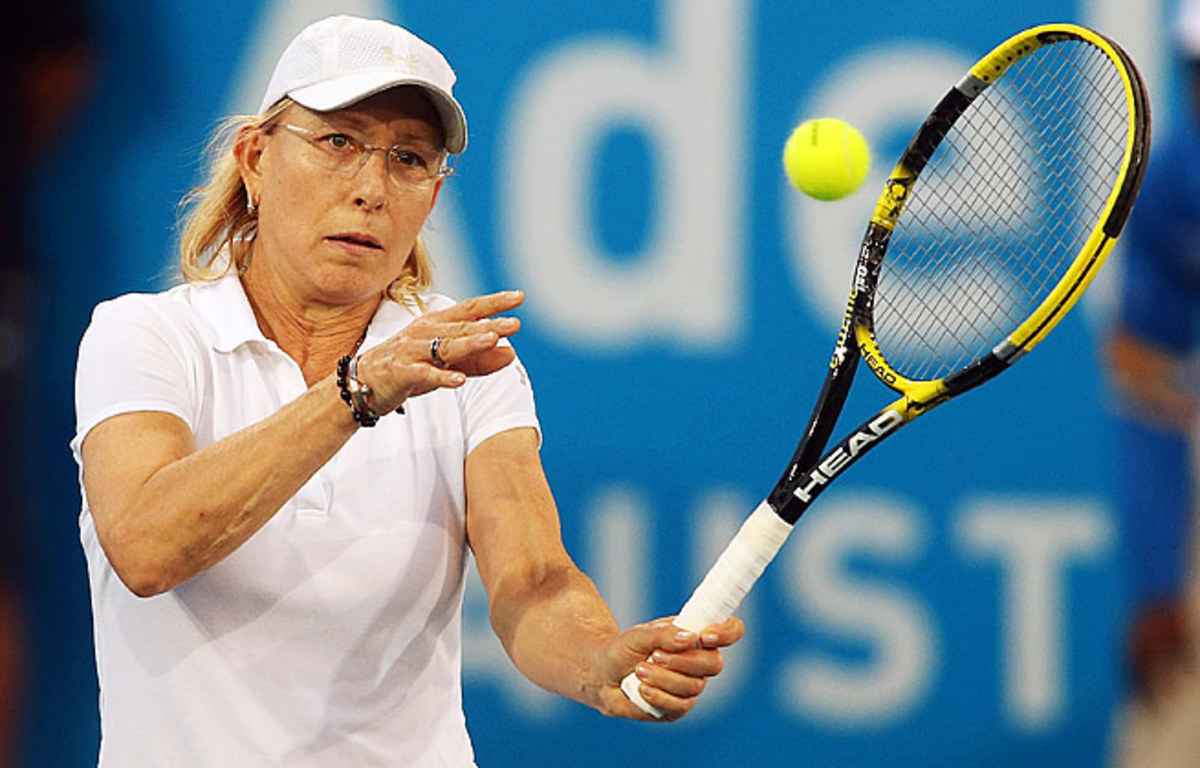Martina Navratilova: Jason Collins a 'game-changer'


Recently in Miami I ran into NFL receiver Donté Stallworth at a gas station. I was filling up my moped. He came over, introduced himself and then told me he had just joined a group called Athlete Ally. Growing in membership by the day, Athlete Ally consists of straight athletes supporting gay athletes at every level, combating homophobia in sports.
This was just another indication that we're living in a time of transformation. I mean, a gorgeous, straight football player stopped me to talk about his very public support for LGBT athletes? How cool is that?
We've come a long way. In the 1980s I knew an NHL coach who was convinced there were no gay hockey players. Ever. Certainly not on his teams. Why? "This is a macho sport," he said. Remember Reggie White? In the '90s, the Packers star appeared in a newspaper advertising campaign to persuade gays and lesbians that they could "cease" their homosexuality. The NFL responded with ... a lot of silence.
When I came out, in 1981, I didn't have much public support and I know I lost endorsements. But I never had to worry about losing my job. In tennis, there are no bosses, no general managers and no coaches who can keep players from competing. So I was safe in that regard. For team sports athletes, this is not the case. A homophobic coach at any level -- high school, college or pros -- could keep a player from playing. Remember Rene Portland, the women's basketball coach at Penn State? She proudly boasted she would not allow a lesbian on her team. In the past, that kind of homophobia would have had support from the front office. Why come out when -- apart from dealing with all the other complications -- it could kill your sports career!
But the times changed. Boy, did they ever change.
Any revolution starts with a small step. As I see it, this one started with Vikings punter Chris Kluwe and his R-rated (but darn smart and funny) editorial on Deadspin last year. That was a catalyst because it then became clear: Straight players were standing in support of gays in general -- and their gay teammates, whoever they might be. Those gay athletes might have been deeply closeted, but there was unspoken acknowledgement: We know you exist. Kluwe wasn't shunned or ridiculed for his stance. The tables turned. It was the homophobes who were left standing in the cold, scorned and criticized by fans and the media. How is that for a turnaround in, relatively speaking, a very short time?
There were other gestures, too. Steve Nash and Kobe Bryant filmed anti-homophobia public service ads. Brendon Ayanbadejo, the NFL linebacker, offered to help gay athletes make a public declaration. The NHL came out, so to speak, with the groundbreaking You Can Play initiative to combat homophobia in sports. It's the first major league sport to openly support the LGBT community and I believe this will make a huge difference.
Now that Jason Collins has come out, he is the proverbial "game-changer." One of the last bastions of homophobia has been challenged. How many LGBT kids, once closeted, are now more likely to pursue a team sport and won't be scared away by a straight culture?
Collins has led the way to freedom. Yes, freedom -- because that closet is completely and utterly suffocating. It's only when you come out that you can breathe properly. It's only when you come out that you can be exactly who you are. Collins' action will save lives. This is no exaggeration: Fully one third of suicides among teenagers occur because of their sexuality. Collins will truly affect lives, too. Millions of kids will see that it is OK to be gay. No need for shame, no need for embarrassment, no need for hiding.
Now that Collins has led this watershed moment, I think -- and hope -- there will be an avalanche. Come out, come out wherever and whoever you are. It is beautiful out here and I guarantee you this: You will never, ever want to go back. You will only wonder why it took so long.
